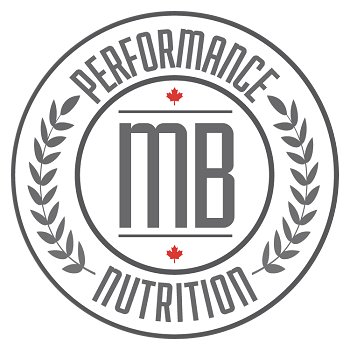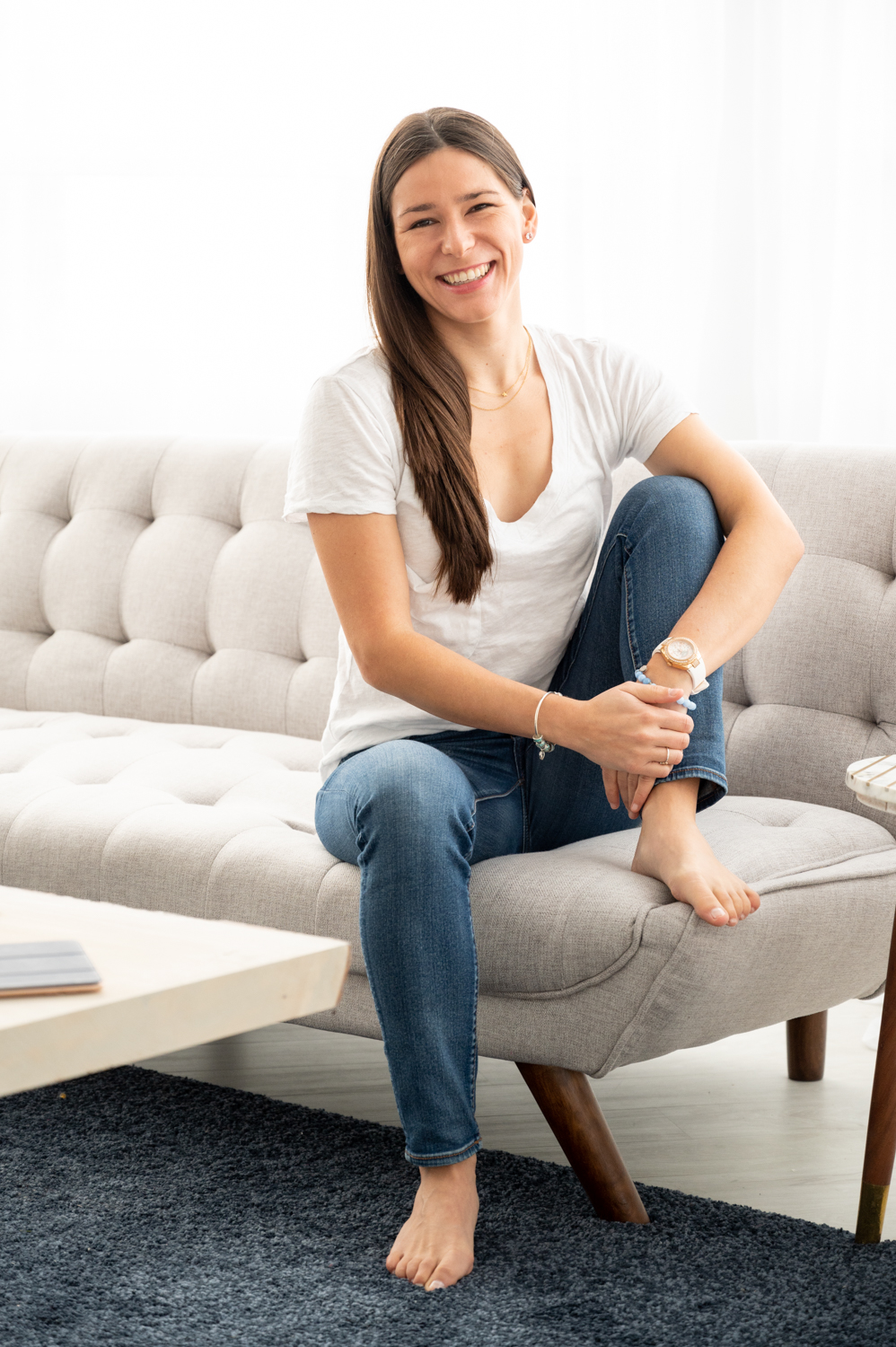Last updated on January 8th, 2025
As a nutritionist, I get asked on an almost daily basis for my opinion on the latest dieting trends circling the Internet. I get asked about paleo, carb cycling, if it fits your macros, and lately a lot of people have been asking about the ketogenic diet.
My answer to these questions is almost always the same:
Everyone is biochemically individual meaning no diet will work the exact same way for two completely different people. There are studies done on some specific health conditions that can be put into remission or treated through specific diets like the Paleo Autoimmune Protocol or keto diet, but that doesn’t mean it should become a trend that everyone follows. Just because your girl friend lost 20 pounds in 9 weeks on a keto diet doesn’t mean it actually worked. It doesn’t mean it’s right for you and it doesn’t even mean it was right for her. All the diet did was put a restriction on specific foods that are commonly agreed upon as unhealthy. In a couple of weeks of restricting “bad foods” and consuming more “good foods”, you SHOULD lose some weight. And many times, it’s just water weight… But that doesn’t mean your overall health is any better either. I’m also not a fan of cutting out an entire macronutrient from the diet, especially when you’re an athlete.
Then I go on to ask what the goals are of the person asking me the question. It usually has to do with weight loss. Sometimes it has to deal with a specific medical condition or they’re just bored of how they’re eating so they think following a strict plan will help them.
I could sit and list pros and cons for every type of diet possible, including a vegan, gluten free, sugar free diet. No diet is absolutely perfect and no diet will absolutely provide 100 percent of the nutrients your body needs. Many studies have been done on popular diets, with most coming back deficient in at least 3 key nutrients, and some deficient in up to 15 key nutrients.
Why? Because everyone is different and everyone has different nutritional needs. Even in your own lifetime you will go through phases of completely different nutritional needs, so following one type of diet “forever” is not practical. A change in seasons, a change in stress levels, a change in activity levels…all of these and more can affect your nutritional needs.
Not only is it not practical, it’s not really possible. If you don’t have a specific medical reason to follow a strict diet (such as celiac disease) and you’re doing it just because, chances are you’re going to be absolutely miserable, stressed out over how to make food choices and you’re going to find yourself straying away from the diet with the worst foods possible.
Even if you manage to stick to your diet for its duration (like Whole 30) what’s the plan afterward? Do you keep eating that way? Do you go back to eating the way you did before? Did you actually learn anything about how to eat? Or are you craving the foods you were forced to cut out of your life so badly that that’s all you can think about the minute you’re “allowed” to eat them again?
So you followed a diet for a month, or a few months and actually stuck to it and actually saw great results. Fantastic! But then you had no more rules to follow, so you just kept eating the way you were before and all of a sudden minor symptoms start creeping back like headaches, brain fog, 3 pm crash, insomnia, face breakouts, joint pain… Next thing you know you’ve gained back the weight you had lost. Maybe even more.
This time, don’t reach for another fad diet. If you want to make a change that will actually last, you have to make a LIFEstyle change. You need to educate yourself on what kinds of food make your body feel good and what kind of foods make your body feel bad. And I mean REALLY pay attention to this.
There are some common allergenic foods I remove from my clients’ diet for short periods of time to test their reactions to them, only if I think it’s necessary based on their individual symptoms and health concerns. But overall, it’s about adding nutrients to the diet rather than restricting food. When you fill up on the right stuff first, there’s usually less room for the other stuff.
To me, health is more important than aesthetics. Just because someone is thin does not make them healthy and just because someone is overweight does not make them unhealthy. If you’ve got a 6-pack of abs but you have raging joint inflammation and pain, daily headaches and heartburn, you are not healthy.
5 Tips for Overall Health
- Eliminate nutritional deficiencies as much as possible. This is on an individual basis and sometimes requires short-term or long-term supplementation, depending on the situation. For example, if you have a digestive disorder, you will definitely need supplementation. A body that is nutrient deficient will not function optimally, and that includes the ability to lose weight. This is where you’ll need the help of a nutritionist (like me!).
- Just Eat Real Food. The more natural your food is, the better. If you can consume at least 80 percent of your food in its most natural form (no barcodes and packages!) the other 20 percent can be for everything else. When purchasing packaged foods try, as often as possible, to keep your sugar intake to less than 5g per 100g of food and try, as often as possible, to buy packaged foods with less than 5 ingredients that you can actually pronounce. Allow yourself to have treats, just try to educate yourself on ingredient lists and find the healthiest option available to you.
- Learn portion control for YOUR body type, size, activity level and goals. This doesn’t mean strict macronutrient calculations or calorie counting. This doesn’t mean following container sizes an online company sells through their “coaches” that are one size for everyone. If you want to know the specifics, I can easily calculate that for you, but there’s some drawback there too.
- Stay active. Most people have very sedentary jobs and sit for a large portion of their day, then they sit in their car to and from work and then they come home and sit on the couch to watch TV all night. Get in those 10,000 steps a day. Join a sports league. Find an activity that keeps you moving and makes you happy. Just because Crossfit is popular doesn’t mean you have to like it or have to do it.
- STOP STRESSING. Seriously. Stress is one of the worst things for your health. I’ve said it before and I will say it again. You can be the happiest person on the planet and not work out and not eat perfectly and be healthy or you can be the person who does HIIT 6 days a week and eats a restrictive diet and hates every minute of it and is stressed to the max and keeps getting sick, keeps getting injured or is battling with weight issues and can’t figure out why. Don’t be that person. There’s a happy medium. Find it and stick to it. If you go on a major guilt trip and hate the whole world because you ate a small portion of spaghetti once this month, you have way bigger problems to deal with than nutrition and exercise. It doesn’t need to be THAT stressful.
BONUS
- If you’re not sleeping a minimum of 7 hours a night, you’re not going to be healthy overall. Your body needs rest to repair itself and grow. All those hours spent in the gym aren’t worth much if you’re neglecting your sleep. Can’t sleep? Find the underlying causes and deal with it.
- Do what works for YOU. Ask yourself “how’s this working for me?” Maybe you don’t have celiac disease but you have realized every time you consume gluten your knees hurt for a few days after. So don’t eat gluten. Maybe you love ice cream, but every time you eat dairy your face breaks out. So don’t eat dairy. There are always alternatives.
One of the biggest positive changes you’ll start to notice as this becomes a lifestyle change and not a quick fix fad diet is that you actually start to enjoy it. You don’t have restrictions (minus anything health specific related) but you’ll eventually stop eating certain foods because your taste buds will change and you will realize you don’t like how sugary or how salty they are or because you’ve realized you don’t feel as good when you eat them. When you eliminate a food from your diet by your own choice because you’ve realized the negative way it has impacted you, it goes a lot further than just reading about it on the internet.
Once you’ve got EVERYTHING figured out, there’s even more ways to tweak things to match your specific goals. Again, that’s where I can come in and help you. Don’t get ahead of yourself though. The foundation is important and needs to be laid down before you can build the house on top of it.
By the way, this is not going to happen overnight. I don’t want to discourage you, but I also want to be real with you. It can take up to a year or more for your eating, exercise and lifestyle habits to all line up where they need to be for you to reach your goals. So don’t be discouraged when you’re only 30 days in and haven’t lost 10 pounds.


